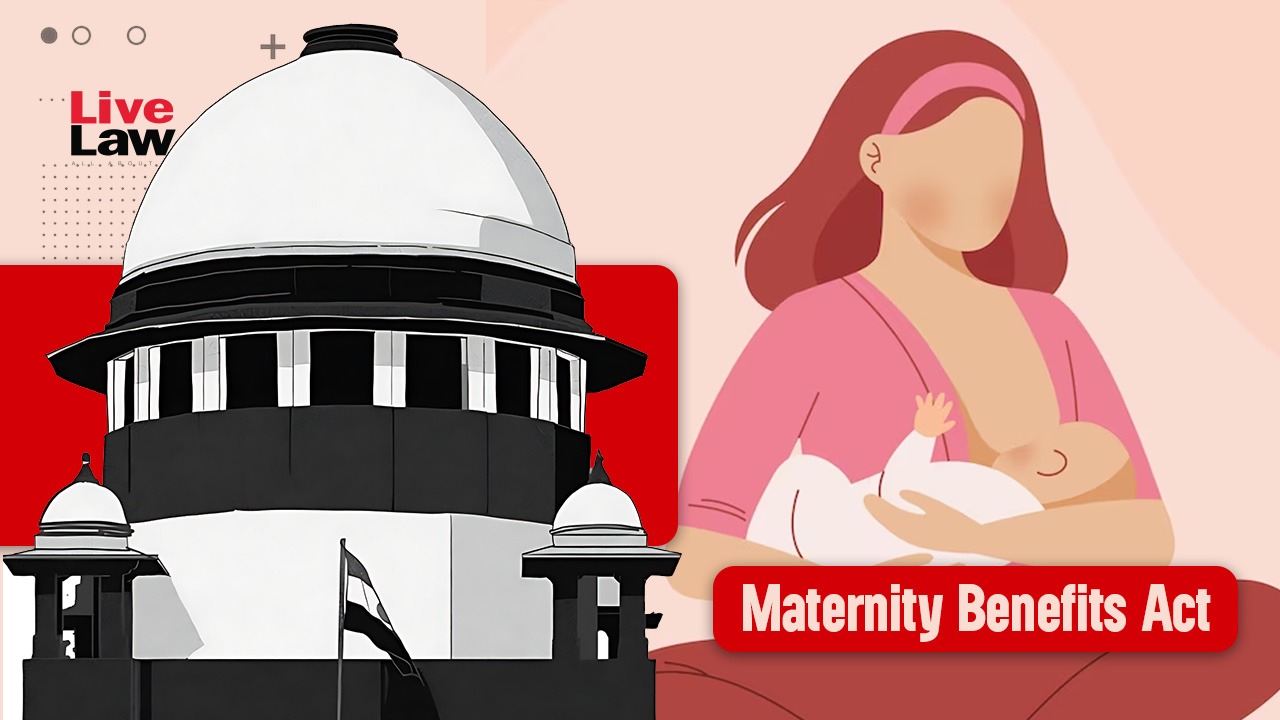
Maternity Benefits if Contractual Employment Term Overshoots- SC
Contents News/Article Date: 18th August 2023
Relating to which Act: The Maternity Benefit Act 1961, and the Maternity Benefit Rules in each State.
Penalty under the Act: If any employer fails to pay any amount of maternity benefit to a woman entitled under this Act or discharges or dismisses such woman during or on account of her absence from work in accordance with the provisions of this Act, he shall be punishable with imprisonment which shall not be less than three months
Applicable to which State: All the States and Establishments covered by the Maternity Benefit Act and Rules
Type: Sights in Plus News report
Pertains to: Contractual women employees
Relevance of this news: Karma Global is in the business of HR Services, Payroll, Outsourcing and Regulatory Compliances right from its inception in 2004 and since then, has brought in a lot of efficiencies and technological upgradations with experts on its roll, to ease the hassles of Payroll Processing, Temp Staffing, On-boarding, Employee Life Cycle, Statutory, Regulatory and Payroll compliances by providing customized solutions to all its elite clients.
Karma Global does excellent work on providing ESI Services both to establishments as well as Insured Employees and in this respect, it will inform all its clients and insured employees about the many announcements that the Government has made in terms of expansion of ESI Scheme, so as to make it available in the remotest of places viz. 744 districts and also to make health facilities and medical colleges in progressive districts of our country further expanding post graduate medical seats.
And in this instance: On Thursday, 17 Aug, The Supreme Court held that maternity benefits have to be granted even if the period of benefit overshoots the term of contractual employment.
Subject: Maternity Benefits if Contractual Employment Term Overshoots- SC
Appended is the complete news item
Maternity Benefits if Contractual Employment Term Overshoots- SC
On Thursday, 17 Aug, The Supreme Court held that maternity benefits have to be granted even if the period of benefit overshoots the term of contractual employment.
The Supreme Court of India directed the employer to pay maternity benefits as would have been available in terms of Sections 5 and 8 of the Maternity Benefits Act, 1961 and payment to be made within 3 months.
Maternity Leave Eligibility
A woman should have worked with her employer for at least 80 days in the 12 months preceding the date of her expected delivery.
Women who are pregnant, adopting a child, or experiencing a miscarriage are eligible for maternity leave in India.
Commissioning, or surrogate mothers, are also entitled to up to 26 weeks of maternity leave which starts from the day the new-born is handed over to the adoptive parents.
- Pregnant women
- Women adopting a child
- Women who experience a miscarriage
- Surrogate or commissioning mothers
Maternity Leave Benefits
As per Maternity Benefit Act 1961, Any woman employee can use her maternity leave in India for a certain period of time, when she will receive her full salary while she is away fulfilling her maternal obligations and duties.
To ensure that pregnant women are able to work in a safe and healthy manner, their workplace has to provide certain amenities such as hygienic restrooms, comfortable seating or working arrangements, and safe drinking water.
If a woman, having been delivered of a child, dies during her delivery or during the period immediately following the date of her delivery, she is entitled for the maternity benefit.
For first and second-time mothers, the Maternity Benefit Act 1961 states that she can take 6 months, or 26 weeks, off.
With every subsequent child, the mother can avail 3 months, or 12 weeks, off for her maternity leave, which is a paid leave wherein her employer needs to pay her salary in full.
Maternity Benefit Act provides mothers with provisions for child care, and the employee can go back to her previous post when she returns from her maternity leave.
A woman who legally adopts a child below the age of three months or a commissioning mother shall be entitled to maternity benefits for a period of twelve weeks.
In case where the nature of work assigned to a woman is of such nature that she may work from home, the employer may allow her to do so after availing of the maternity benefit.
